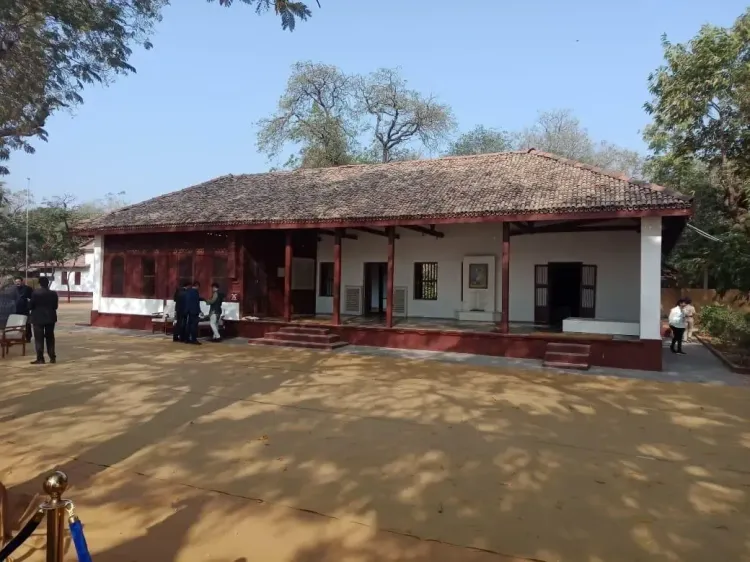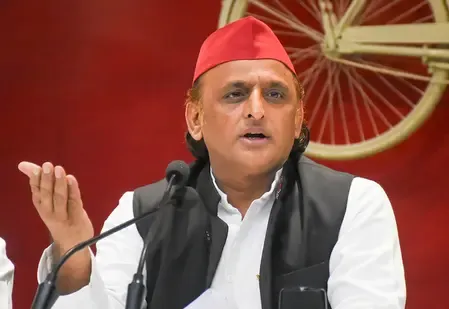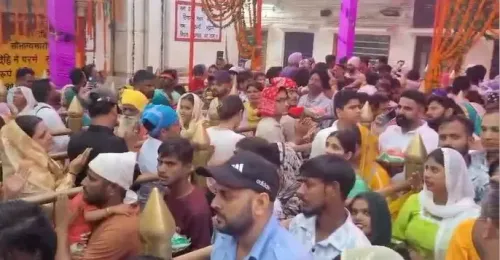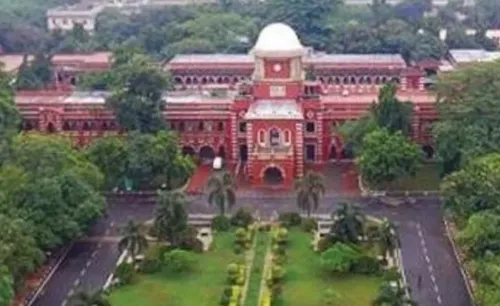Supreme Court Rejects Challenge to Gujarat's Acquisition of Sabarmati Ashram

Synopsis
Key Takeaways
- Supreme Court dismissed Tushar Gandhi's plea.
- The acquisition is seen as undermining Gandhism.
- Challenges to the project were previously rejected by the Gujarat High Court.
- The ashram is a significant historical site.
- Concerns about public funds being misused.
New Delhi, April 1 (NationPress) The Supreme Court on Tuesday declined to consider a petition lodged by Tushar Gandhi, the great-grandson of Mahatma Gandhi, expressing concerns regarding the Gujarat government's acquisition of the Sabarmati Ashram.
A bench comprising Justices M.M. Sundresh and Rajesh Bindal dismissed the special leave petition that challenged the decision of the Gujarat High Court to uphold a resolution enacted by the Gujarat government in March 2021 for the extensive development of the Gandhi Ashram Memorial and its surroundings.
The petition argued that the government's takeover of the Sabarmati Ashram, under the guise of development, contradicts the very essence of Gandhism. It further claimed that this action undermines Article 39 of the Constitution, which aims to prevent the accumulation of wealth, as well as Article 49, which focuses on safeguarding monuments and sites of national significance.
"Mahatma Gandhi created the ashram himself, representing simplicity, self-reliance, and community living. The ashram demonstrates Gandhian principles of sustainability and a harmonious relationship with nature. The Sabarmati Ashram serves as a monument to the legacy of Mahatma Gandhi and his crucial part in India's struggle for independence," stated the petition.
It also mentioned that an initial writ petition was submitted to the Gujarat High Court contesting the redevelopment efforts and requesting the annulment of the government resolution. However, the Gujarat High Court dismissed this petition, prompting an appeal to the Supreme Court, which set aside the contested order and remanded the writ petition back to the High Court.
"Subsequently, the Gujarat High Court reevaluated the matter. Yet, without addressing the actual facts and circumstances, the petitioner's requests were denied," the latest special leave petition presented before the Supreme Court claimed.
"Currently, the dignity and sanctity of the ashram, which symbolically represents the legacy of Mahatma Gandhi, the father of our nation, are under imminent threat due to an alleged redevelopment initiative. The misuse of public funds for purposes other than humanitarian, under the guise of development, contradicts Gandhi's principles," the petition added.
Furthermore, it asserted that the ashram is a symbol of peace, simplicity, and tranquility, and the proposed redevelopment jeopardizes the essence of Mahatma Gandhi and the ashram.
"The Sabarmati Ashram was established by Mahatma Gandhi in 1917. On February 2, 1926, Gandhi and Maganlal Khushalchand established the Satyagraha Ashram Trust through a deed. On September 30, 1933, Gandhi handed over the Satyagraha Ashram for the service and benefit of Harijans in perpetuity to the Harijan Sevak Sangh via a communication to Ghanshyamdas Birla," the petition concluded.









